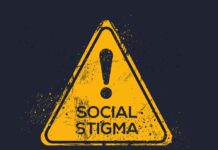A recent article, published in Philosophy, Psychiatry & Psychology, offers commentary on an essay by Sarah Kamens comparing the phenomenon of pharmaceutical “ghostwriting” to the experience of hearing voices. The author, well-known cultural psychiatrist Laurence J. Kirmayer, responds to Kamens’s critique by pointing to the broader social science literature and highlighting forms of colonialism and domination that occur in psychiatry.
“Luhrmann, Ramachandran, and Tharoor have shown that while people in the United States are more likely to hear negative, critical voices, in Ghana and India, they may hear friendly voices of relatives speaking words of encouragement,” Kirmayer writes.
“In the case of people with schizophrenia in the United States, the persecutory voices might be readily seen as reflecting the larger social context of isolation, alienation and paranoia characteristic of a highly competitive, neoliberal, racist society. Thus, the voices of psychosis are the kind of self-critiques of failure, dejection, and marginalization that characterize the social position of the psychotically disabled person in an economy that demands consistent consumption, performance, and productivity.”
 The phenomenon of “medical ghostwriting,” in which pharmaceutical companies hire professional writers with scientific expertise to ghostwrite medical studies, has been criticized as rendering scientific articles as “little more than infomercials.”
The phenomenon of “medical ghostwriting,” in which pharmaceutical companies hire professional writers with scientific expertise to ghostwrite medical studies, has been criticized as rendering scientific articles as “little more than infomercials.”
This injection of “marketing spin” can be disastrous for the scientific integrity of research studies, especially as the articles are often rubber-stamped by “thought leaders” in the academic community, granting the appearance of legitimacy and unbiased expertise.
Medical ghostwriting is just one example of psychiatric corruption tackled by scholars such as Sarah Kamens. Her work seeks to address problems associated with the medical model understanding of mental illness, such as the individualizing biomedical narrative around hearing voices.
The current article responds to Sarah Kamens’s essay, which discusses the thematic similarities and differences between the phenomenon of hearing voices and that of medical ghostwriting. Laurence Kirmayer argues that Kamens’s article can be used to highlight broader issues of what is called “epistemic violence,” or how disciplines like psychiatry participate in dominating and colonial practices.
According to Kirmayer, there is a thematic similarity between medical ghostwriting and hearing voices in the sense that they both have “some opacity about the source of communication.” In the case of medical ghostwriting, this is a “deliberate social arrangement” based on undeclared marketing and corporate interests, while in hearing voices, it is part of the “intrinsic phenomenology.”
Kirmayer points to a metaphorical “haunting” taking place in both cases, reiterating Kamens’s argument, which draws from the philosopher Jacques Derrida. Kirmayer states that both hearing voices and medical ghostwriting are haunted by “structures of inequality.”
Those who hear voices have their experience “naturalized” in a medical narrative about dysfunctional brain states, while medical ghostwriters “naturalize” pharmaceutical spin as objective scientific inquiry.
In both cases, the political, institutional, and “epistemically violent” nature of social injustices are present as “hauntings,” even though they are silenced in official psychiatric narratives.
Socioeconomic, racist, sexist, ableist, and other forms of social oppression, which are known to correlate with psychiatric symptoms, are only vaguely present, masked over by psychiatry’s suppression of the “local lifeworlds” of marginalized peoples, such as psychiatric survivors and service users.
“Treating structural violence and economic inequities as a consequence rather than a cause of mental disorder gets the situation backward. This is what the recent efforts to promote structural competence in psychiatric training and practice aim to redress.”
For Kirmayer, as for Kamens, postcolonial theory can be an essential tool for analyzing how psychiatry and adjacent disciplines operate according to dynamics of domination and oppression—a form of “pulling back the curtains” to examine the “historical and structural sources of suffering,” and how these fields are grounded in colonial and corporate interests, rather than merely an innocent preoccupation with healing.
“In contemporary psychiatry, awareness of social and political issues is often subordinated to a focus on the brain as the putative site of mental disorders—despite the wealth of evidence for the limits of this perspective,” Kirmayer concludes.
“In its embrace of brain-centric explanations for health problems that have important social roots, psychiatry continues to collude with forces of economic inequality and subjugation, even as it strives to care for those who are afflicted, in part, precisely because of these forms of social injustice.”
****
Kamens, S. R. Postcolonialism and (Anti) psychiatry: On Hearing Voices and Ghostwriting. Philosophy, Psychiatry, & Psychology. (Link)
Kirmayer, L. J. (2020). Toward a postcolonial psychiatry: Uncovering the structures of domination in mental health theory and practice. Philosophy, Psychiatry & Psychology, 27(3), 267-271. (Link)















Thanks Micah.
Voices are interesting and need inquiry. I have a voice that tells me psychiatry is completely off the mark and because they are off the mark, the attempts and exploring is the harm itself. The thing I am looking at right now, and describing has changed long before I even had the first thought to describe it.
When does psychiatry not make an inquiry into their own voices? Because really, if one does make inquiry, one says “we do not know”, “what we are doing is attempting to know”.
But know what? One man cannot be another’s experiment, and no sane man “treats” the thing he does not know. Science NEVER EVER told psychiatry that they know or found something, not something that can be “treated”.
Report comment
“… people in the United States are more likely to hear negative, critical voices, in Ghana and India, they may hear friendly voices of relatives speaking words of encouragement,”
As a former psychotomimetic “voice” hearer, I’m guessing this may have more to do with the much greater use of the antidepressants and antipsychotics in the US, compared to India. Since both the antidepressants and antipsychotics can create “voices,” via anticholinergic toxidrome poisoning. And anticholinergic toxidrome induced “voices” are evil. Where as a drug withdrawal induced “super sensitivity manic psychosis” consists of friendly “voices,” at least from my experience.
https://en.wikipedia.org/wiki/Toxidrome
Although the psychiatrists claim to know nothing about any of this, since their DSM “bible” doesn’t mention anticholinergic toxidrome, nor does it mention – I don’t think – drug withdrawal induced super sensitivity manic psychosis.
“psychiatry and adjacent disciplines operate according to dynamics of domination and oppression.” Absolutely, that’s what they are all about. And some of the psychologists and psychiatrists break lots of laws, in order to attempt to dominate and oppress others, at least from my experience. One of my former doctors finally was convicted by the FBI for his crimes against the state (but not really for his crimes against lots of patients). His psychiatric “snowing” partner in crime was never arrested however, unfortunately.
https://www.justice.gov/usao-ndil/pr/oak-brook-doctor-convicted-kickback-scheme-sacred-heart-hospital
“psychiatry continues to collude with forces of economic inequality and subjugation, even as it strives to care for those who are afflicted, in part, precisely because of these forms of social injustice.”
The psychiatric and psychologic industries have seemingly bribed all the lawyers and judges, which allows the psychiatrists and psychologists to avoid paying for their malpractice, which is staggeringly unjust. And the psychologists will go so far as to attempt to steal from others, in my case with a BS “art manager” contract/classic thievery contract, in order to attempt to create “economic inequality and subjugation.”
Truly, the psychologists and psychiatrists need some ethics classes. And most of them probably belong in jail as murderers, since their industries are killing “8 million” people every year, with their neurotoxic drugs, and “invalid” DSM disorders.
https://www.nimh.nih.gov/about/directors/thomas-insel/blog/2015/mortality-and-mental-disorders.shtml
https://www.nimh.nih.gov/about/directors/thomas-insel/blog/2013/transforming-diagnosis.shtml
And I do hope the psychologists and psychiatrists some day get out of the child abusing, and child abuse covering up / pedophile aiding, abetting, and empowering business. Since that is the primary function of their industries, historically and today. Despite the fact that covering up child abuse is illegal in the US.
https://www.indybay.org/newsitems/2019/01/23/18820633.php?fbclid=IwAR2-cgZPcEvbz7yFqMuUwneIuaqGleGiOzackY4N2sPeVXolwmEga5iKxdo
https://www.madinamerica.com/2016/04/heal-for-life/
And the systemic child abuse covering up psychological and psychiatric systems have already turned the heads of my former religion into systemic child abuse cover uppers too, which is unfortunate.
https://books.google.com/books?id=xI01AlxH1uAC&printsec=frontcover&source=gbs_ge_summary_r&cad=0#v=onepage&q&f=false
There is good reason for psychiatry and adjacent disciplines to be “haunted” industries. Truly, I’ve never met more persistent criminals, than the systemic child abuse covering up psychological and psychiatric systems.
Report comment
‘disciplines like psychiatry’ Psychiatry is not a ‘discipline’ it’s a eugenics crime against humanity. This is clearly stated in it’s history and continues being as it was not abolished and outlawed after WWII.
http://breggin.com/wp-content/uploads/2008/01/psychiatrysrole.pbreggin.1993.pdf
Report comment
I agree with you streetphotobeing, another reference source
Murderous Science: Elimination by Scientific Selection of Jews, Gypsies, and Others, Germany 1933-1945 https://books.google.ca/books/about/Murderous_science.html?id=pH9uAAAAIAAJ&redir_esc=y&hl=en
Report comment
Most psychopharmalogical research is such trash, that it’s methodology would also show that rum cures the flu.
1. Get a bunch of people payed by the rum industry to be your researchers.
2. Get a bunch of alcoholics with a flu as test subjects.
3. Use water as placebo.
4. Have your scale for flu symptoms also include symptoms caused by alcohol withdrawl like headaches.
5. Subjects on rum will do better.
6. Rum cures the flu proven.
Report comment
In my experience very few qualified doctors are capable of distinguishing between a social thought inside a person’s head and the hearing of Voices outside a person’s head.
Report comment
I’d imagine most normal people experience positive and negative social thoughts inside their heads, as people are social beings and life is socially competitive.
Report comment